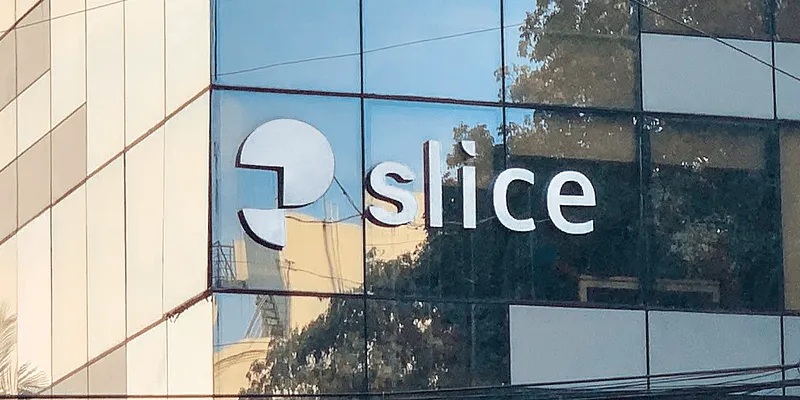[Techie Tuesday] Tracing computer engineer Siva Kumar Tangudu’s life from the groves and labs of Goa to CTO of fintech startup Slice
This week’s Techie Tuesday features Slice CTO Siva Kumar Tangudu, whose love and passion for coding led him to do cool, crazy things like building a Google Maps-like software, just so he could travel better, to now leading a fintech firm that’s changing the way credit works in India.
Siva Kumar Tangudu’s childhood was spent amid the swaying coconut and palm trees dotting the coastline of Goa. But what he recalls most fondly today is the influx and efflux of his father’s scientist friends who worked at the National Institute of Oceanography (NIO), which in 1981 organised the first Indian expedition to Antarctica.
Many an afternoon Siva spent listening in on academic discussions his mathematician father had with his colleagues, and it eventually sparked a love for science in the young boy. But when he stumbled upon a computer in his father’s laboratory, life, as he knew it, was never the same.
“This was the time when floppy disks were 4-5 inches huge, but it was still very fascinating,” Siva tells YourStory in a conversation.
After the novelty of chess games and Minesweeper wore off, the youngster decided to explore programming languages, and slowly started writing basic codes with the help of friends and books. Creating things out of thin air that didn’t exist before left a deep impression on him, and entrenched him in his belief that this was what he wanted to do for the rest of his life.
Today, as the Chief Technology Officer at , a fintech startup that affords its customers flexibility in paying off their Slice Visa card dues, and earning reward points on transactions, Siva says he still ensures he’s able to maintain close ties to the passionate, eager, curious coder in him, even though he commands a team of bright engineers.
“Coding is an essential part of my life, and I truly believe that in order to succeed in the world today, it’s important for everyone to know at least some basic programming, even if it’s on Excel,” he adds.
A national responsibility
After completing his bachelor’s in engineering from Andhra University, Siva moved to Mumbai to pursue his master’s from IIT, which he says truly expanded his consciousness.

Siva's computer science batch at IIT-Bombay, circa 2005
A melting pot of cultures, dialects, languages, and ethnicities, Mumbai broadened his perspective, and showed him the endless possibilities of things he could do and change as an engineer. When he was not busy observing his classmates “techi-fy” their hobbies and what they were passionate about, he was busy writing clever codes to hack into his friends’ systems.
He fondly remembers the many times he would run into prominent businessmen, innovators and engineers in college, and the informal way in which they would chat with each other, as well as the students.
One such time, Infosys Founder Narayana Murthy dropped by, unannounced, on the campus. Soon, he attracted a crowd of 15-20 students who were excited to get the opportunity to catch him unencumbered by formal niceties, Siva recalls.
“I went over too because it was Narayana Murthy in the flesh, and you don’t pass up such an opportunity, especially as an engineering student. I remember so vividly what he said to us that day — he said that each of us, in that group, were now tasked with the national responsibility of creating jobs for one lakh Indians, at least, after we graduated. I took that to heart,” he says.
At the time Siva was graduating, the startup scene was not lucrative or ‘happening’ the way it is these days. Job security took precedence over everything else, and Siva landed himself a role at Oracle, in its server technologies division where he built enterprise solutions.
As months turned into years and the usual rigamarole of a corporate job set in, Siva says he found himself actively missing coding, deliberating and creating something new. He teamed up with his colleague friends, and started working on random projects — basically weekend hacking.
During one such exercise, the group decided to create a Google Maps sort of platform for themselves that they could use when they travelled, which all of them loved doing.
“This was before Google Maps was even launched, but we did it just for ourselves so we could navigate easily,” he quips. “Those weekends we spent hacking helped me realise I wanted to work in an environment where such things were encouraged, where I could experiment and innovate. So, I decided to go the startup route.”

When the startup life comes a-knocking
Siva’s tryst with the startup world started after he left Oracle for a US-based SaaS startup, Vendio. After spending some time building tech there, he decided to venture out on his own, and founded Kawanan to explore the SoLoMo space (social, local, and mobile).
Kawanan was born as a result of many evenings he spent with his friend, who worked in the same city as he did, where they spent time brainstorming and ideating new use cases for technology.
“It became a tradition for us to meet up every evening and think about the different ways in which we could make a difference. We realised at the end of it that we wanted to build something of our own,” he says.
While Siva eventually abandoned the idea and moved back to the services sector, he says the lessons he learned changed his outlook on growth hacking. The biggest thing he took away from the experience was the extremely important role sales and marketing people play in the growth of a company.
“I have a newfound respect for sales and marketing people. Startups are about selling a story and what’s in your mind, and it’s an incredibly hard thing to do, but, at the same time, it’s an important part of growth,” he quips.
His subsequent roles at Hightail, a Dropbox-like Silicon Valley startup, as well as HackerRank taught him other important lessons such as not building tech for tech’s sake, and creating impactful technology that could empower people.

Siva (left) with Kawanan Labs' cofounder, Raman Kakilate (right) | (Image credit: Siva)
Today, when he approaches a problem statement or is writing a piece of code, Siva says he asks questions such as who the primary users of that technology are, and in what ways he could ease their pain points, before charting out an answer.
It was that perspective and way of looking at what he did that next landed him a role at .
Do more with less
Siva’s wife, who had undertaken a course in fashion, was working on an assignment one night when a few things she was doing caught his eye.
“I used to go see whatever she was doing and realise ‘tech can solve that problem!’ Some problem statements she used to work on could easily be solved by using a layer of tech.”
Naturally, he hit the ground running on his first day at Myntra, where the team was developing a platform that could help streamline brands’ offerings on the fashion platform based on latest consumer trends and preferences.
Myntra has played a huge role in defining the development of fashion technology in India, and Siva was among a handful in the pilot seat that saw the movement take off and become mainstream. He played an important role at the startup when the pandemic hit and the company decided to get its house in order — something the engineers didn’t get time for when things were still happening at breakneck speed.
During his time at Myntra, from 2017 to March 2021, Siva started helping Rajan Bajaj, Slice’s founder and CEO, hire techies and developers for bolstering the fintech startup’s tech infrastructure. He’d cut Slice a cheque back in 2016, and, with BNPL and consumer credit gaining popularity, became more hands-on when it came to hiring, as well as helping Slice innovate on the tech side.
“I remember I’d mailed in my cheque to Slice and told Rajan I was always available for any sort of tech troubleshooting, should he require it. Tech was what I was good at, and what Slice wanted to do was very interesting,” he says.
On Rajan’s insistence, Siva, who had already been closely working with Slice, agreed to join the startup as its chief technology officer earlier this year.

Five months in, and Siva says the team has already identified and started working on taking the startup’s offering a notch higher with the introduction of new features such as gamification, as it sets out to capture nearly 200 million Indians who are not serviced by legacy credit card companies.
Apart from orchestrating and piecing together Slice’s tech, Siva is also closely involved in building the team and hiring.
"One thing I tell new engineers and hires these days is that they shouldn’t worry about running out of jobs — there are enough jobs to go around for techies these days. I tell applicants and new hires that they should, instead of chasing money or job security, look to work with companies whose mission and vision they’re aligned with," he says.
“For me, I’d rather do more with less, than less with more,” Siva says.
YourStory’s flagship startup-tech and leadership conference will return virtually for its 13th edition on October 25-30, 2021. Sign up for updates on TechSparks or to express your interest in partnerships and speaker opportunities here.
For more on TechSparks 2021, click here.
Edited by Teja Lele


![[Techie Tuesday] Tracing computer engineer Siva Kumar Tangudu’s life from the groves and labs of Goa to CTO of fintech startup Slice](https://images.yourstory.com/cs/2/f49f80307d7911eaa66f3b309d9a28f5/Slice-1633355789306.png?mode=crop&crop=faces&ar=2%3A1&format=auto&w=1920&q=75)
![[Techie Tuesday] Meet the 15-year-old social entrepreneur who aims to change the world](https://images.yourstory.com/cs/2/f49f80307d7911eaa66f3b309d9a28f5/TT-01-1632056159026.png?fm=png&auto=format&h=100&w=100&crop=entropy&fit=crop)
![[Techie Tuesday] From building interfaces for mammograms to automating customer workflows, how Intuit’s Namita Devadas found her calling in coding](https://images.yourstory.com/cs/2/721b1c100eb911eb936a1114ea00a5c0/Feature-Images-o1-1630994139998.png?fm=png&auto=format&h=100&w=100&crop=entropy&fit=crop)





